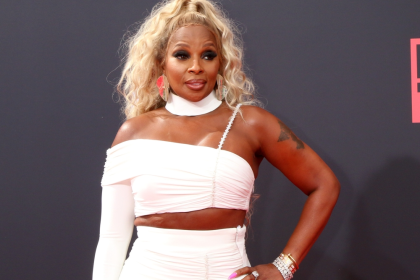In a striking shift from traditional dating norms, a new wave of celibacy is sweeping through the Black Gen Z community. Recent data reveals that a substantial portion of young Black adults are embracing abstinence, driven by a desire for personal growth and a rejection of toxic dating culture. This trend, particularly prominent among women, signals a profound change in how the younger generation approaches relationships and self-discovery.
The dating app BLK, a platform dedicated to Black singles, conducted an extensive survey that sheds light on this emerging phenomenon. The results paint a picture of a generation prioritizing mental wellness and individual development over conventional dating practices.
The Numbers Tell a Story
The survey’s findings are eye-opening. A significant 43% of Black Gen Z daters report practicing celibacy, with the trend especially pronounced among women. An impressive 64% of Black Gen Z women identify as celibate, with nearly two-thirds of them having adopted this lifestyle within the past six months. This rapid adoption suggests a seismic shift in attitudes towards dating and personal relationships.
The motivations behind this choice are diverse, but a common thread emerges. Six out of ten respondents cite personal growth or self-discovery as their primary reason for embracing celibacy. This focus on individual development aligns with broader societal trends emphasizing mental health and emotional well-being.
Beyond Personal Growth
The benefits of celibacy extend beyond mere self-improvement. Two-thirds of those surveyed report enhanced mental and emotional well-being as a direct result of their choice. This positive impact is not limited to personal spheres; it also influences dating experiences. An overwhelming 87% of respondents indicate that celibacy has either positively affected their dating life or made no discernible difference.
These statistics challenge the notion that active dating is necessary for personal fulfillment or social acceptance. Instead, they suggest that taking a step back from sexual relationships can lead to more satisfying interactions and a clearer sense of self.
A Cultural Shift in Progress
While celibacy is gaining traction, it’s not without its challenges. The survey reveals a complex picture of social acceptance. One in three Black Gen Z daters believes that celibacy is becoming more normalized within their community. However, a larger proportion – 43% – still perceives a stigma or misunderstanding surrounding this choice.
This dichotomy highlights the ongoing cultural shift. As more young adults embrace celibacy, they’re simultaneously pushing against established norms and expectations. The process of normalizing this lifestyle choice is clearly underway, but it faces resistance from longstanding social pressures and misconceptions.
The Psychological Perspective
The trend towards celibacy among Black Gen Z is part of a broader movement in adult populations. Recent psychological research indicates that approximately one in six women and one in ten men are choosing to take breaks from sex and dating. This suggests that the phenomenon is not isolated to any one demographic but represents a wider societal shift in approaching relationships and personal development.
Psychologists note several potential benefits of voluntary celibacy. Many individuals report experiencing clearer mental states and increased overall happiness when abstaining from sexual activity. This aligns with the survey findings, where a majority of respondents cited improved mental and emotional well-being.
Redefining Relationships
The rise of celibacy among Black Gen Z is more than a passing trend; it represents a fundamental reevaluation of what relationships mean and how they should function. By stepping back from traditional dating norms, these young adults are creating space to define their own values and expectations.
This shift challenges the notion that romantic or sexual relationships are necessary for personal fulfillment. Instead, it promotes the idea that self-discovery and personal growth are crucial precursors to healthy partnerships. By prioritizing their own development, Black Gen Z daters are potentially setting the stage for more meaningful and satisfying relationships in the future.
The Role of Technology
Interestingly, this trend towards celibacy is occurring against the backdrop of an increasingly digital dating landscape. Apps like BLK, which conducted the survey, have made it easier than ever to connect with potential partners. Yet, a significant portion of users are choosing to abstain from sexual relationships.
This paradox suggests that increased access to dating opportunities may be contributing to dating fatigue or disillusionment with traditional romantic narratives. The choice to practice celibacy could be seen as a response to the overwhelming nature of modern dating, with young adults seeking a more intentional and meaningful approach to relationships.
Looking Ahead
As celibacy continues to gain traction among Black Gen Z, it’s likely to have far-reaching implications for dating culture, relationship norms, and personal development paradigms. This movement challenges society to reconsider its assumptions about sexuality, relationships, and personal fulfillment.
For many young Black adults, celibacy represents a path to empowerment and self-discovery. It offers a way to break free from societal expectations and focus on individual growth. As this trend evolves, it may lead to new forms of relationships and social interactions that prioritize emotional connection and personal development over traditional dating milestones.
The rise of celibacy among Black Gen Z is more than a fleeting phenomenon; it’s a powerful statement about autonomy, self-worth, and the changing nature of relationships in the 21st century. As these young adults continue to chart their own paths, they’re not just redefining dating – they’re reshaping the very foundations of how we understand personal growth and interpersonal connections.

















